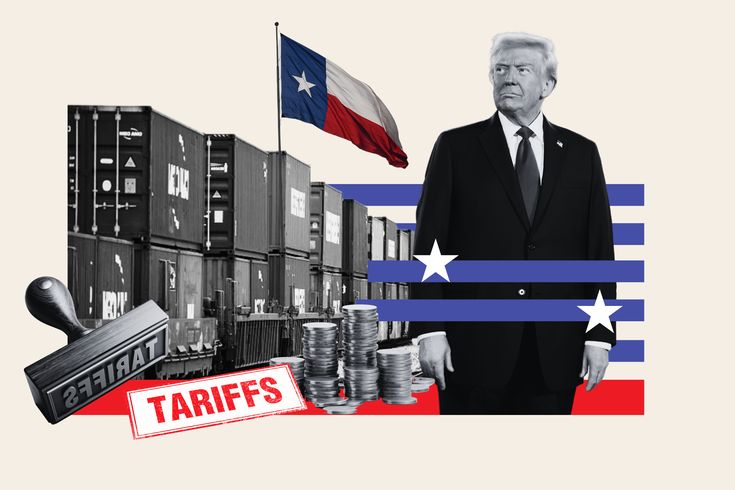The announcement of reciprocal tariffs by U.S. President Donald Trump has created ripples across global trade and financial markets. For India, the imposition of a 25–26% tariff on exports such as automobiles, electronics, and textiles marks a significant challenge to its trade dynamics. This blog explores the immediate and long-term impacts of these tariffs on the Indian stock market and economy.
Immediate Market Reaction
Indian stock indices experienced sharp declines following the tariff announcement:
- Sensex dropped by over 800 points, closing at 75,704.31.
- Nifty fell below the critical 23,000 mark, signaling bearish sentiment across sectors.
Export-oriented industries bore the brunt of the selloff, with auto stocks like Tata Motors and Bharat Forge declining by up to 8%. IT sector stocks also faced pressure due to fears of reduced spending by U.S.-based clients.
Sectoral Impacts of Trump Tariffs
1. IT Sector
The Indian IT industry, heavily reliant on U.S. clients for revenue, is under scrutiny. While services are not directly impacted by tariffs, concerns over economic slowdown in the U.S. have raised alarms about reduced technology budgets. Major IT stocks like Infosys and Wipro witnessed declines as investors brace for potential demand contraction.
2. Automobile Sector
Automobile manufacturers are among the worst-hit sectors. The tariffs increase production costs and reduce competitiveness in the U.S., India’s largest export market for vehicles and components. Companies like Tata Motors saw their shares plummet due to concerns over declining exports and profitability.
3. Pharmaceuticals
Interestingly, pharmaceutical companies initially gained traction as they were exempted from tariffs. However, subsequent remarks from Trump about potential future tariffs on generic drugs caused volatility in pharma stocks like Sun Pharma and Lupin.
4. Export-Oriented Sectors
Other export-driven industries such as textiles, electronics, and gems faced challenges due to reduced demand and tighter margins under the new tariff regime.
Economic Implications of Trump Tariffs
The broader economic impact of Trump’s tariffs extends beyond stock market fluctuations:
- GDP Growth: Analysts predict that India’s GDP growth could be shaved by 0.3–0.5% due to reduced external demand.
- Rupee Depreciation: The Indian rupee weakened against the dollar, trading at ₹85.69, reflecting heightened uncertainty.
- Foreign Direct Investment (FDI): Trade tensions may deter FDI inflows into India, particularly in export-dependent sectors.
Expert Opinions
Economists argue that while India’s domestic consumption remains robust, export-oriented sectors face prolonged headwinds. Retaliatory measures from India or other nations could further escalate trade tensions, prolonging market volatility. Some experts see a silver lining in this crisis, suggesting that it might accelerate India’s push for self-reliance in manufacturing and exports.
Investor Strategies
Given the uncertainty surrounding Trump’s tariffs, financial analysts recommend a cautious approach:
- Defensive Stocks: Sectors like FMCG and utilities may outperform amid global trade disruptions.
- Diversification: Investors should diversify portfolios across geographies to mitigate risks associated with U.S.-India trade tensions.
- Monitoring Developments: Staying updated on policy changes and retaliatory measures is crucial for informed decision-making.
Read more finance related articles on our website here
Read more about these tarrifs here
